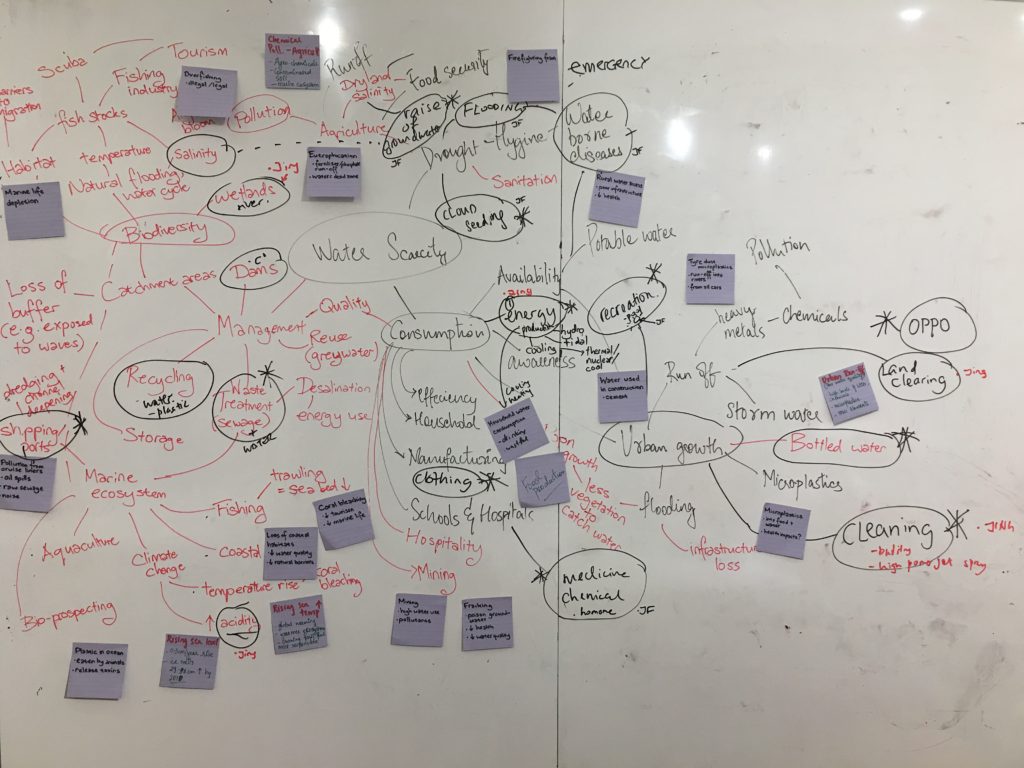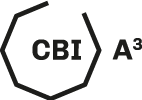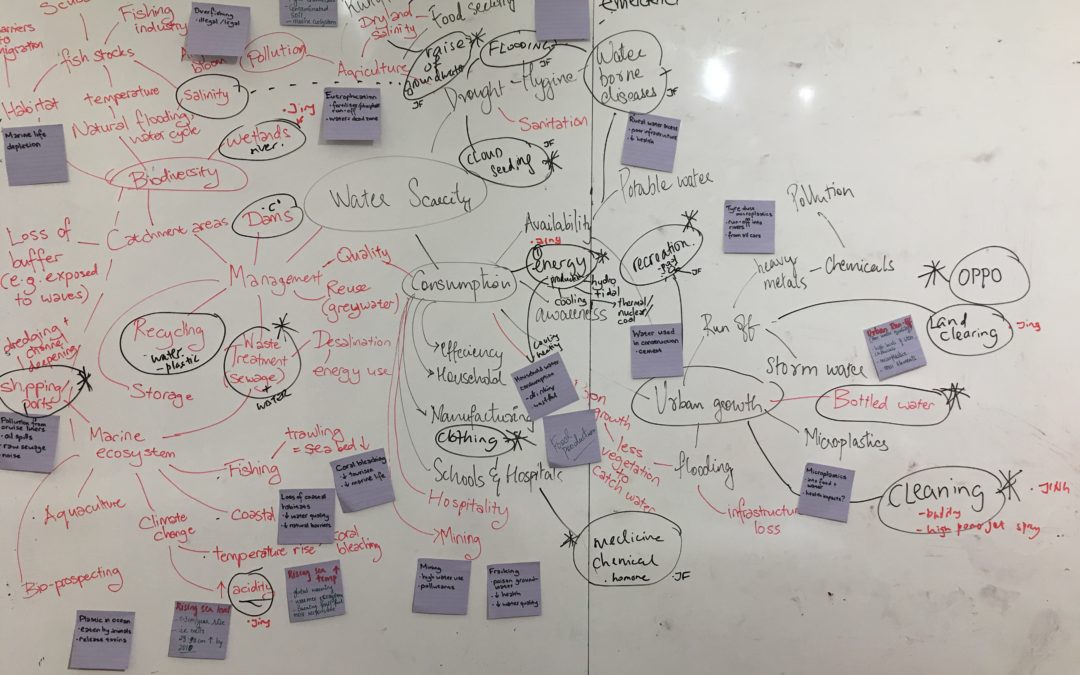What we worked on
This week we continued to build on our opportunity cards and branched out more than we expected to. After looking at future scenarios last week, we gathered a number of problems that have been an issue in the past and some that can be a future problem. We also briefly looked through the available CERN technologies.
After watching the movie “A Plastic Ocean”, we were really inspired and decided to screen it for our peers and teachers.
CBI-alumni and our teaching support Paris has been fantastic at making introductions for people to talk to (Thank you!). Our first two interviews were conducted this week, which were very informative. The first interview was a Google Hangout session with John Eggleston, who has facilitated workshops looking at water issues, and the second a face-to-face interview with Dr S, who has a lot of experience in the development field.

Mapping out the opportunity cards we have completed (purple sticky notes) and areas we have yet to cover.
Interesting Insights
- John told us about a native species of seagrass that is able to photosynthesise even though underwater and which is a good indicator of ecosystem health. Even though its loss is as harmful as the loss of the Great Barrier Reef, it isn’t given the same attention.
- Dr Daniels had a lot of contacts, especially based on his work with Engineers Without Borders. He recommended speaking to groups of people passionate about the topic, such as local scuba divers around Melbourne who have been diving for over 10 years.
“Thirty to 50 years from now, more or less, the water wars are going to start. If people don’t have economic hope and they’re displaced, they tend to get mad and blow things up”
Matthew Huber
Next
- Skype session with our buddies in Germany to coordinate and split the research on CERN technologies for our tech cards
- A visit to the Melbourne Synchrotron this week to familiarise ourselves with a particle physics environment
- Getting in touch with people from Dr Daniels’ and John’s networks – including engineers, PhD students, park employees, other Swinburne academics…
- Start focusing on specific topics from our opportunity cards instead of mapping out further.
- Screening of ‘A Plastic Ocean’ amongst our peers and teachers.
- Getting excited to learn about CERN tech and meet our buddies over at Mannheim soon! – Always!
Reference


The way you organize your whiteboard is genius! We’re also very excited to meeting you as well!
Fantastic brainstorming Team Spring! Also loving your enthusiasm with meeting members of industry to enhance your knowledge.